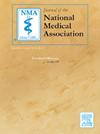Peter Buxtun, the Tuskegee study whistleblower: Memorandum of a hero
IF 2.5
4区 医学
Q1 MEDICINE, GENERAL & INTERNAL
引用次数: 0
Abstract
Introduction
The Tuskegee Syphilis Study, a dark chapter in medical history, still resonates today. The Tuskegee Study, conducted between 1932 and 1972 by the U.S. Public Health Service (USPHS) and Centers for Disease Control and Prevention (CDC), is the longest controversial study performed in the U.S. Peter Buxtun, an epidemiologist at the USPHS, raised ethical concerns about the study and eventually leaked the story to the press, leading to the study's termination. Buxtun has died at the age of 86. It is imperative to remember this study and the heroic actions of Buxtun to expose this ethically unjustified study.
Results and discussion
The Tuskegee Syphilis Study included 399 African American men with syphilis in Tuskegee, Alabama. The participants were promised free medical care to participate in the study; however, they were not informed of their diagnosis of syphilis and they were not treated. Despite the availability of penicillin in 1943, these men were still untreated by the USPHS as the study design was to evaluate the full progression of untreated syphilis on the body. As a result, 28 died directly from syphilis and 100 from complications, 40 spouses were infected, and 19 children were born with congenital syphilis. Buxtun leaked the story to the press in 1972, leading to the termination of the Tuskegee Syphilis Study.
Implications
The Tuskegee Syphilis Study is the longest ethically and morally controversial study in the U.S., mainly based on the lack of respect of the African American race. It disregarded ethical standards and physicians participating in it directly violated the Hippocratic Oath to “do no harm.” The medical community is forever indebted to Buxtun who died on May 18, 2024, for his courage, moral compass, and compassion.
彼得·巴克斯顿,塔斯基吉研究举报人:英雄的备忘录。
简介:塔斯基吉梅毒研究,医疗史上的黑暗篇章,今天仍然引起共鸣。塔斯基吉研究于1932年至1972年间由美国公共卫生服务局(USPHS)和疾病控制与预防中心(CDC)进行,是美国进行的时间最长的有争议的研究。美国公共卫生服务局的流行病学家彼得·布克斯顿(Peter Buxtun)提出了对这项研究的伦理担忧,并最终将故事泄露给了媒体,导致研究终止。布克斯顿去世,享年86岁。我们必须记住这项研究,以及布克斯顿揭露这项不道德研究的英雄行为。结果和讨论:塔斯基吉梅毒研究包括阿拉巴马州塔斯基吉399名患有梅毒的非洲裔美国人。参与研究的参与者被承诺免费医疗;然而,他们没有被告知他们的梅毒诊断,也没有得到治疗。尽管1943年有青霉素,但这些人仍然没有得到USPHS的治疗,因为研究设计是为了评估未经治疗的梅毒在身体上的全面进展。结果,28人直接死于梅毒,100人死于并发症,40名配偶被感染,19名儿童出生时患有先天性梅毒。1972年,布克斯顿把这个故事泄露给了媒体,导致塔斯基吉梅毒研究终止。启示:塔斯基吉梅毒研究是美国最长的伦理和道德上有争议的研究,主要基于缺乏对非裔美国人种族的尊重。它无视道德标准,参与其中的医生直接违反了希波克拉底誓言“不伤害”。布克斯顿于2024年5月18日去世,医学界永远感激他的勇气、道德准则和同情心。
本文章由计算机程序翻译,如有差异,请以英文原文为准。
求助全文
约1分钟内获得全文
求助全文
来源期刊
CiteScore
4.80
自引率
3.00%
发文量
139
审稿时长
98 days
期刊介绍:
Journal of the National Medical Association, the official journal of the National Medical Association, is a peer-reviewed publication whose purpose is to address medical care disparities of persons of African descent.
The Journal of the National Medical Association is focused on specialized clinical research activities related to the health problems of African Americans and other minority groups. Special emphasis is placed on the application of medical science to improve the healthcare of underserved populations both in the United States and abroad. The Journal has the following objectives: (1) to expand the base of original peer-reviewed literature and the quality of that research on the topic of minority health; (2) to provide greater dissemination of this research; (3) to offer appropriate and timely recognition of the significant contributions of physicians who serve these populations; and (4) to promote engagement by member and non-member physicians in the overall goals and objectives of the National Medical Association.

 求助内容:
求助内容: 应助结果提醒方式:
应助结果提醒方式:


